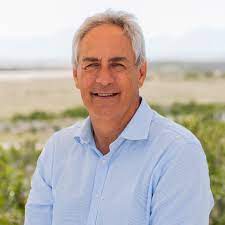Dirk VAN Papendorp
Dirk holds a BSc (1986) and Honours (1989) degree in Agriculture. He is a successful commercial farmer in the Heidelberg region (eastern Overberg) and own two adjacent farms: Voorstekop (his family farm) and Uitvlugt. Voorstekop was awarded the National Veld Trust Award owing to the care Dirk and his father took of the entire environment on the farm. Over the years, various botanists have visited Dirk’s farm and through this he became exposed to a whole new world of rare and special organisms growing on his land – something that completely changed the way he saw his Renosterveld.
Dirk has now registered the Renosterveld and Lowland Fynbos habitats on his farm (±500 ha) as a Nature Reserve (Voorstekop Eco-Reserve) through a Stewardship contract with CapeNature. Originally inspired by his father’s passion for the natural environment, Dirk is a forward-thinking individual who is serious about conservation (no till) farming and the protection of biodiversity. Dirk feels strongly that farming today needs to take all aspects of the farm into consideration and that managing for biodiversity is as important as managing for successful crops and commercial gain.
“I also believe that the nature-based tourism in the Cape Floristic Region’s unique habitats is under-exploited and that this is one of the most important keys to saving rare habitats on privately-owned land.”
Dirk has now registered the Renosterveld and Lowland Fynbos habitats on his farm (±500 ha) as a Nature Reserve (Voorstekop Eco-Reserve) through a Stewardship contract with CapeNature. Originally inspired by his father’s passion for the natural environment, Dirk is a forward-thinking individual who is serious about conservation (no till) farming and the protection of biodiversity. Dirk feels strongly that farming today needs to take all aspects of the farm into consideration and that managing for biodiversity is as important as managing for successful crops and commercial gain.
“I also believe that the nature-based tourism in the Cape Floristic Region’s unique habitats is under-exploited and that this is one of the most important keys to saving rare habitats on privately-owned land.”
